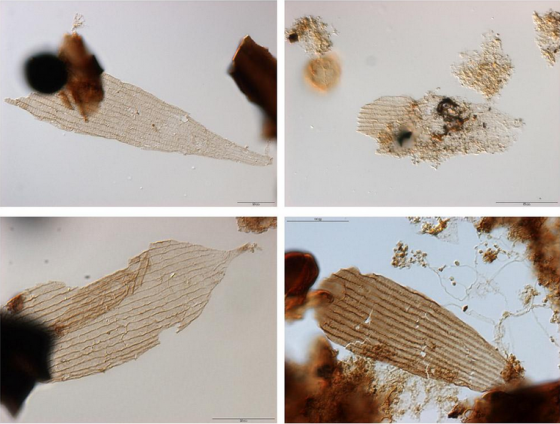World’s oldest moths also roamed Jurassic Park, say Utrecht researchers

An international team of scientists led by researchers from Utrecht University have found the oldest fossil remains of moths and butterflies known to date.
The fossil remains are more than 70 million years older than the oldest fossils of flowering plants and shed new light on the co-evolution between flowering plants and pollinating insects, researchers Timo van Eldijk and Bas van de Schootbrugge claim.
The fossil remains – wing and body scales – were isolated from a core of sediment drilled in northern Germany which straddles the mass-extinction event.
The researchers say the butterflies and moths seemed to have avoided the impact of the mass extinction event at the end of the Triassic era.
‘As the super continent Pangea started to break apart, biodiversity on land and in the oceans suffered a setback with many key species becoming extinct,’ says Master’s student Van Eldijk.
‘However, one major group of insects, the Lepidoptera moths and butterflies, appeared unaffected. Instead, this group diversified during a period of ecological turnover.’
Palaeontologist Bas van de Schootbrugge says the fossil remains contain distinctive hollow scales, and provide clear evidence that there was a group of moths sucking mouth-parts, as have the vast majority of living moths and butterflies.
Modern day butterflies are well known for their association with flowering plants and the butterfly ‘tongue’ has long been assumed to be an important adaptation for feeding on flowering plants.
‘This evidence has transformed our understanding of the evolutionary history of moths and butterflies as well as their resilience to extinction,’ says Van Eldijk.
‘By studying how insects and their evolution was affected by dramatic greenhouse warming at the start of the Jurassic era, we hope to provide insight into how insects might respond to the human-induced climate change challenges we face today.’
Thank you for donating to DutchNews.nl.
We could not provide the Dutch News service, and keep it free of charge, without the generous support of our readers. Your donations allow us to report on issues you tell us matter, and provide you with a summary of the most important Dutch news each day.
Make a donation